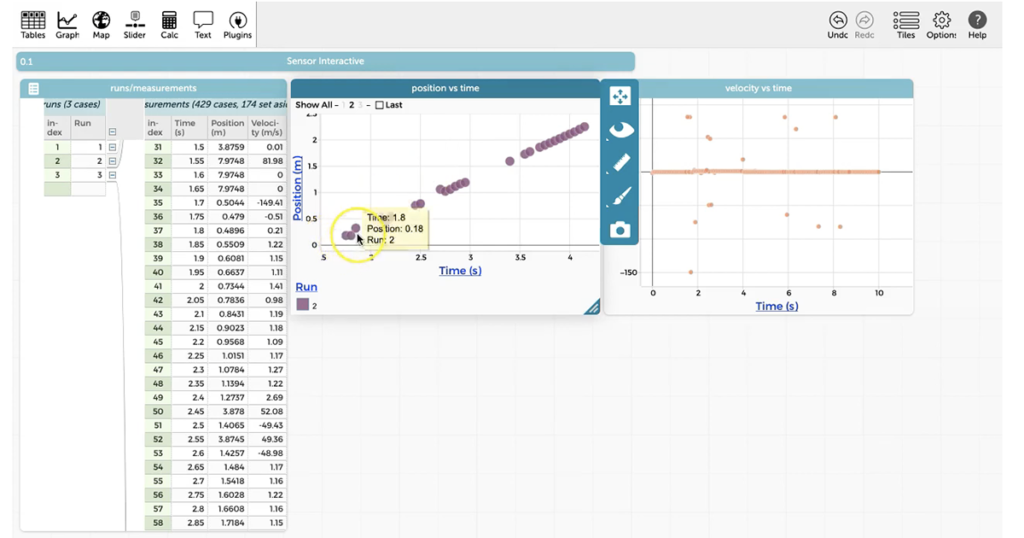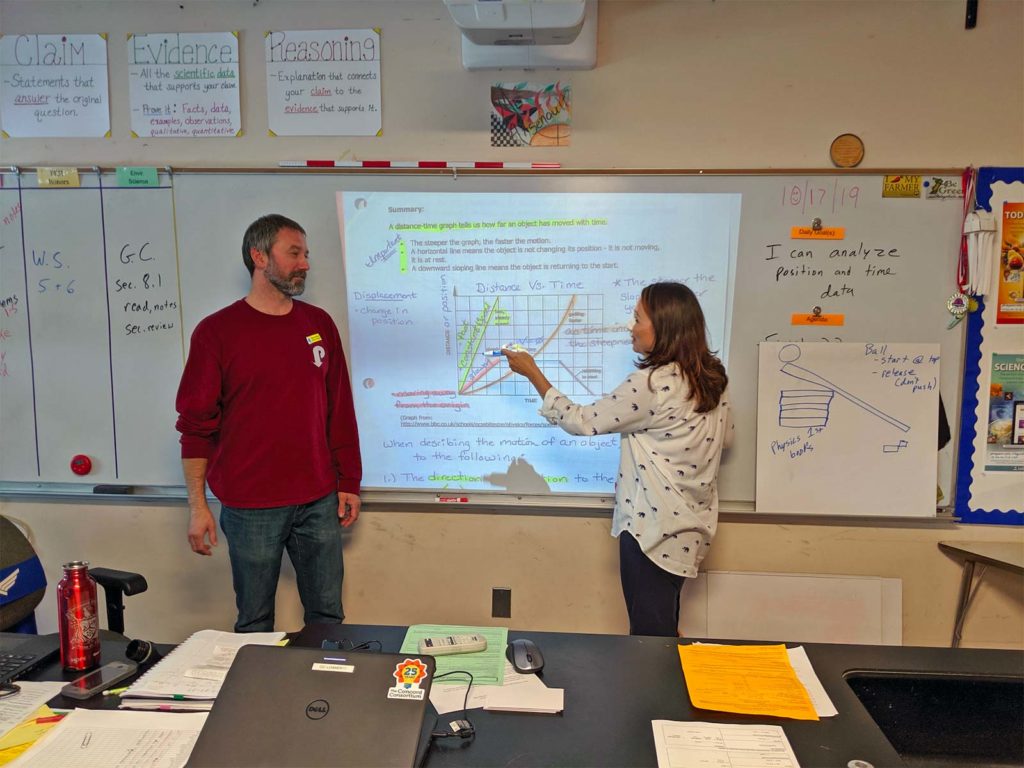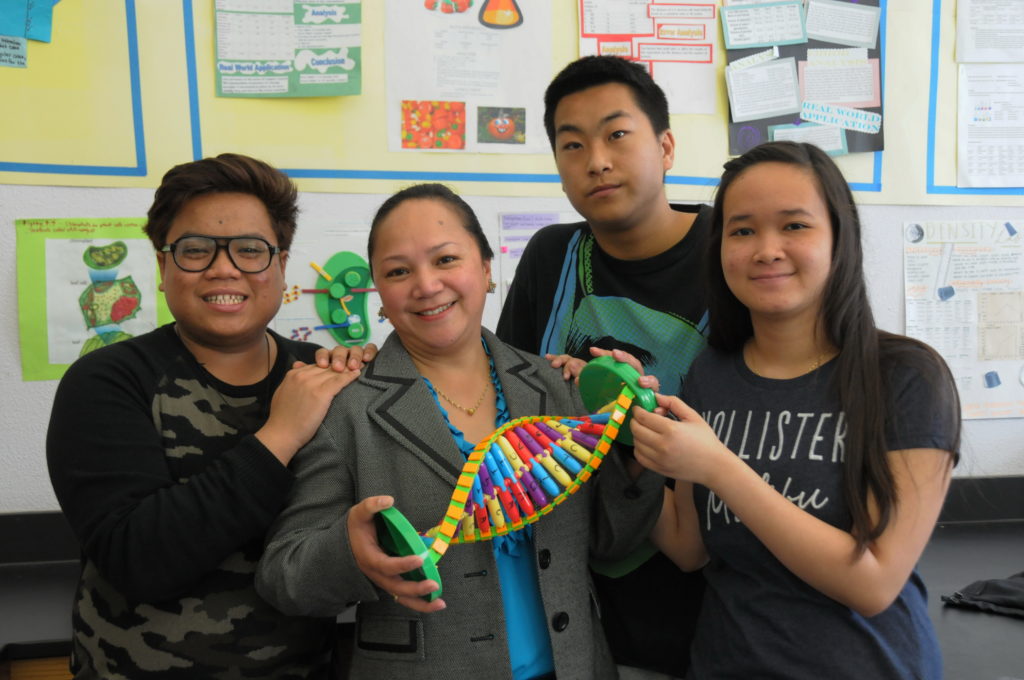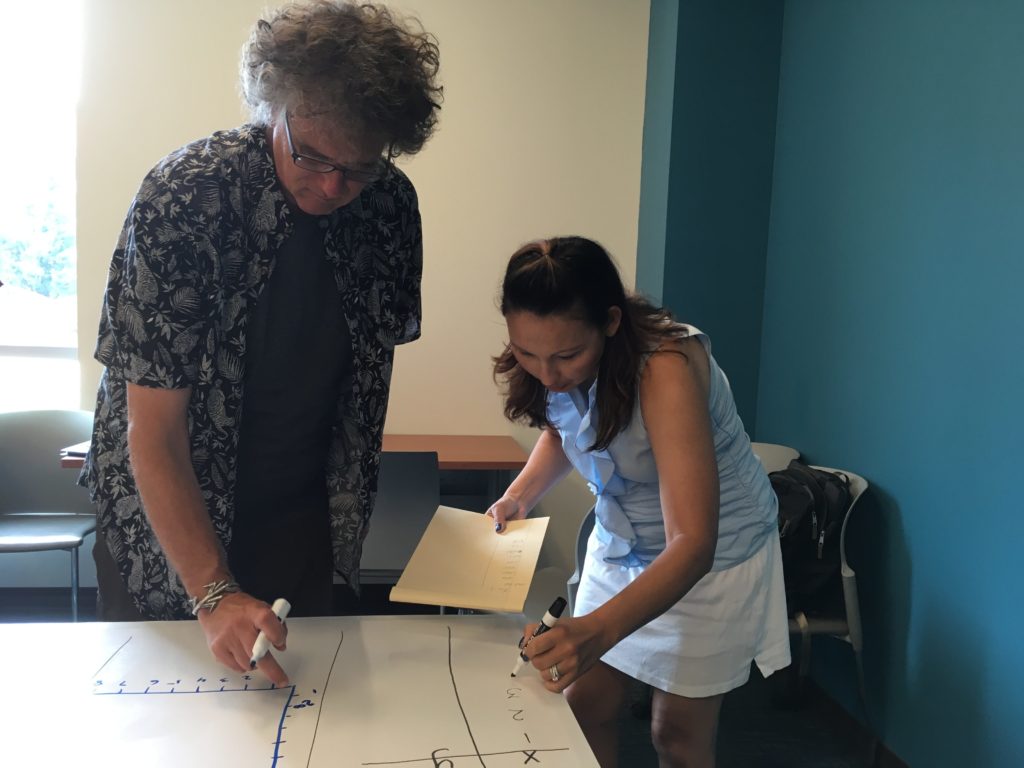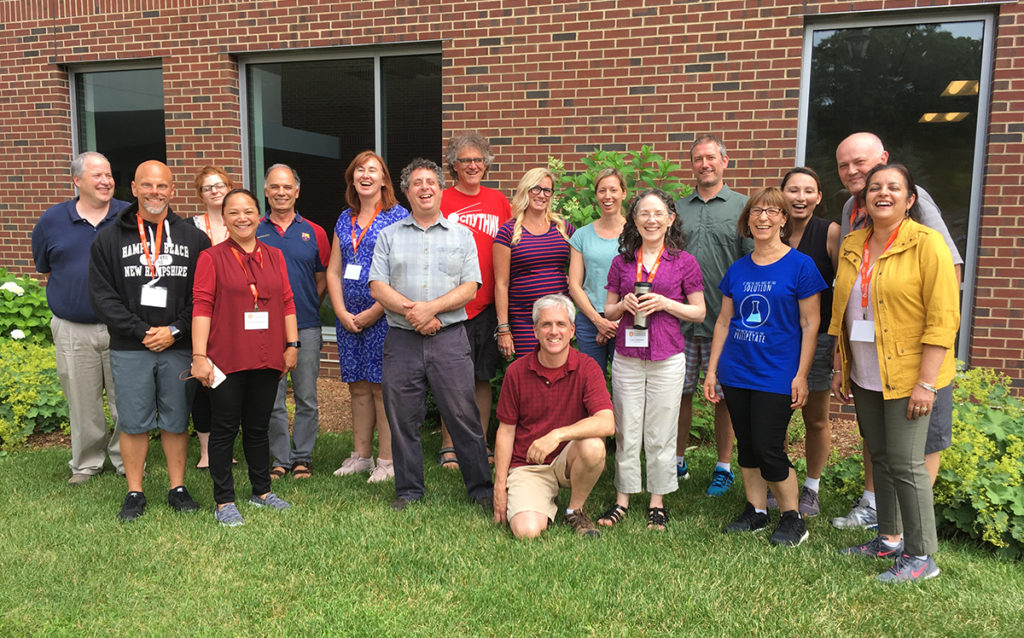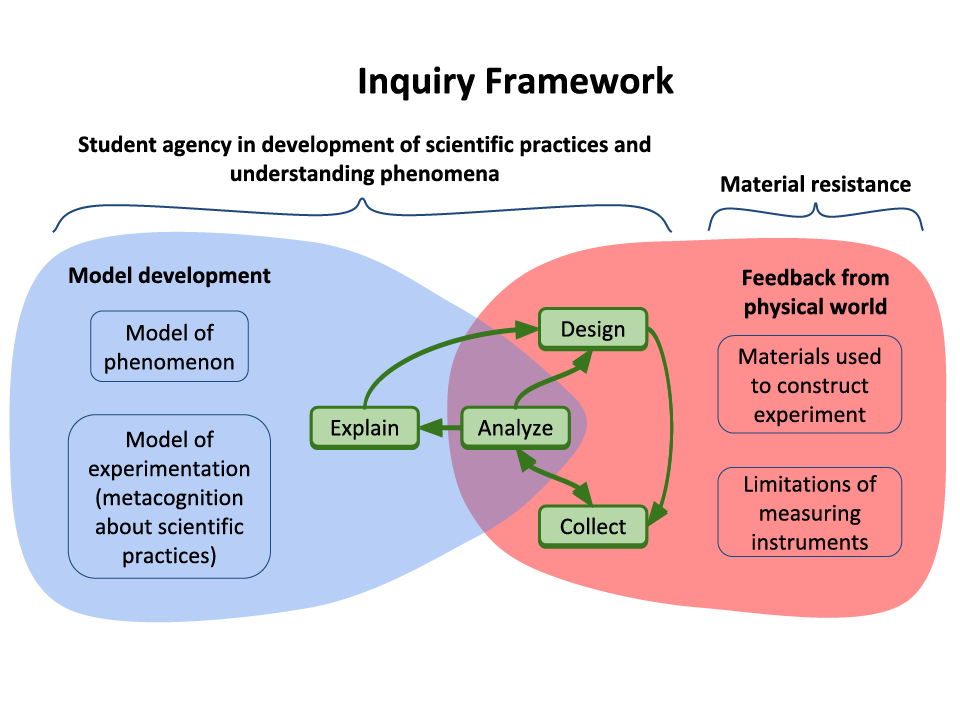Category: Tag: InquirySpace
The Next Generation Science Standards (NGSS) describe eight science and engineering practices with the goal of having students engage in authentic science practices. Although many teachers are committed to three-dimensional NGSS teaching, doing so remotely during a pandemic was challenging, especially with 20, 30, or more students on Zoom, and without access to labs. At […]
Last spring, when a co-teacher in an inclusive physics classroom that is piloting our InquirySpace curriculum in Portsmouth, Rhode Island, asked if she could join our summer teacher workshop, I was elated. I was especially eager to learn how Michelle Murtha would create accommodations to make ninth grade physics accessible for her students on IEPs […]
As a child, Emerlyn Gatchalian was always the teacher: “I’d always get the role of teacher whenever I had playtime with my friends.”
She began her formal teaching career in the Philippines, where a passionate chemistry teacher, who sometimes wore a magician hat and waved a fairy wand, inspired her love for teaching science. “She made learning so exciting and fun,” Emerlyn says. In 2005, after a decade teaching in the Philippines, Emerlyn came to the U.S., but, “Teaching here was so different.” Coming from a more disciplined classroom tradition, she wasn’t used to class management issues. So she sought additional training and learned to implement new classroom routines and policies.
“Getting out of the classroom and into the world.” That’s the most exciting thing about education today, explains Andrew Njaa. A philosophy major at a liberal arts college isn’t the most obvious path to teaching physics. But after graduating from St. John’s College in Santa Fe in 1984, a new fellowship collaboration between St. John’s, the University of New Mexico, and Santa Fe Public Schools changed the course of his career plans. Andrew completed an internship learning how to teach and teaching math at Santa Fe Technical High School. He was convinced that he wanted to be in the classroom.
What do teachers do over the summer? Plan for the next school year, of course! Thirteen enthusiastic teachers from seven different school districts and four states (MA, ME, RI, and CA) spent four days conducting experiments in physics, chemistry, and biology, preparing to bring new technology, curriculum, and pedagogies back to their classrooms. Biology and […]
How do students learn to think like scientists so they can uncover the natural world’s secrets? Scientific experimentation allows students to discover some of nature’s secrets. However, it is not simply about collecting data through the use of various apparatus, whether it’s a conventional microscope or advanced computer technologies. Scientific experimentation requires students to engage […]
